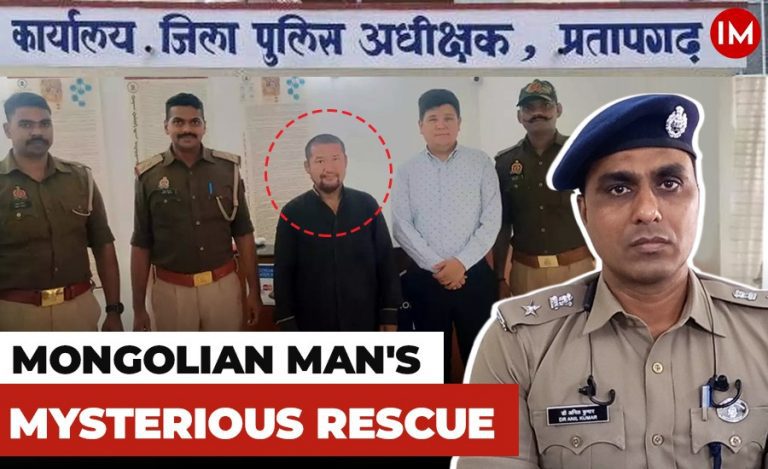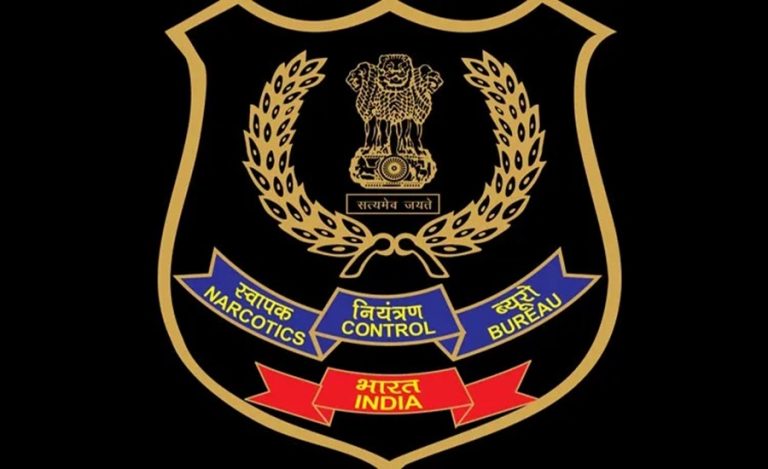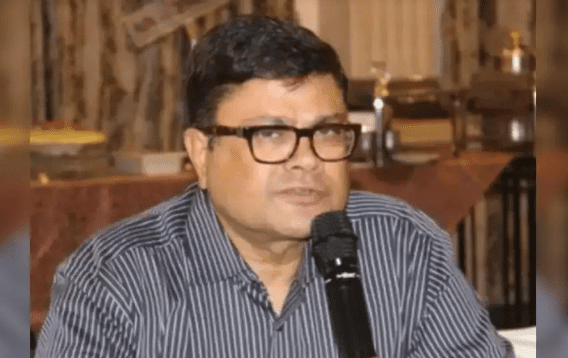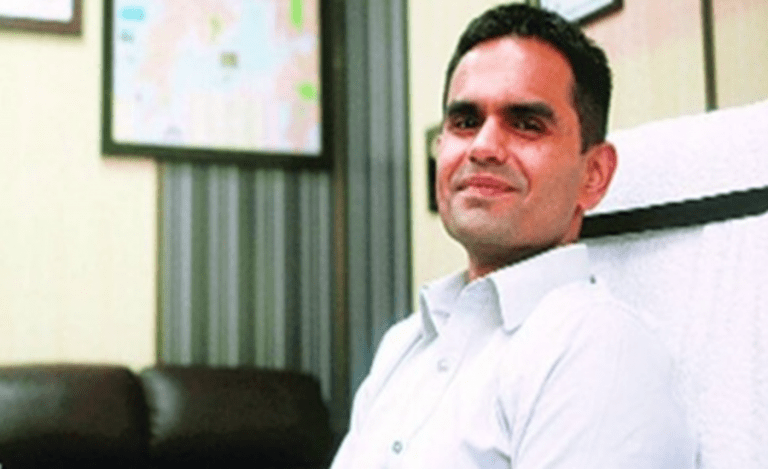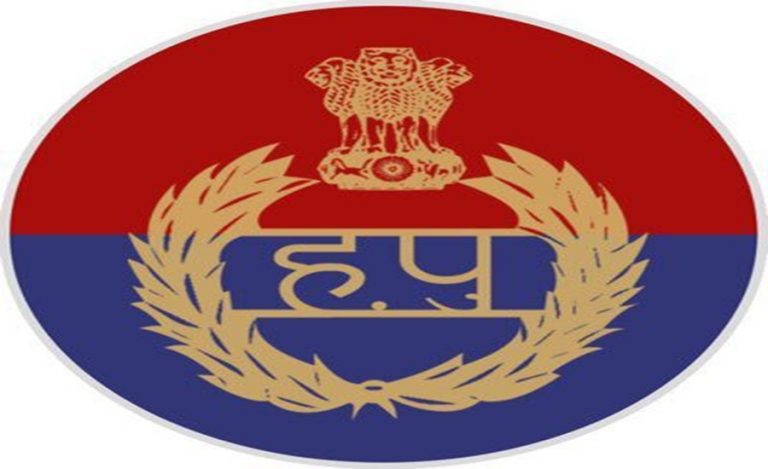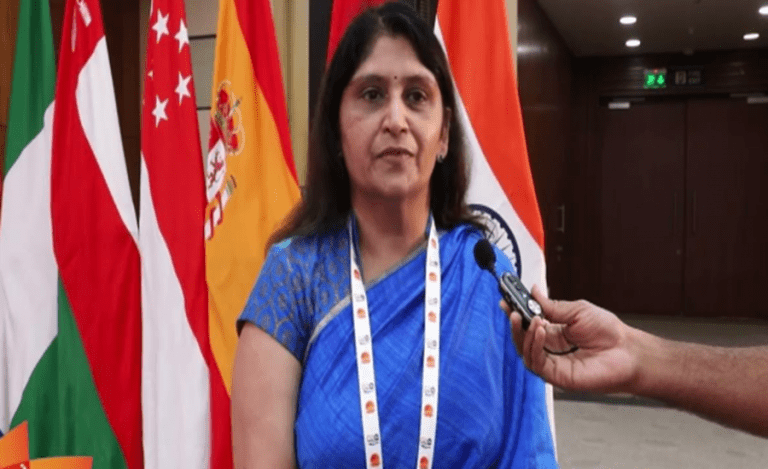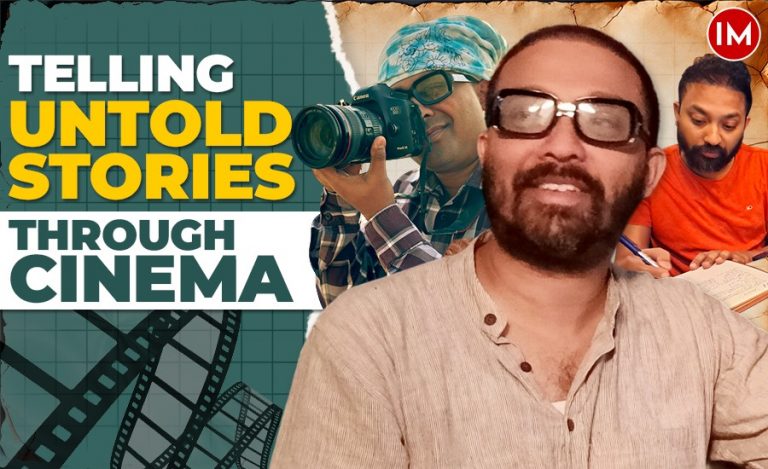Senior IAS officer of Odisha, Mr. Bishnupada Sethi, is as much known for his work as a public servant as for his writings. One of his books of poetry, Beyond Here and Other Poems (2021), was recently selected for the MA English course by the University of Mumbai.
The poems in this book portray a multitude of emotions the poet felt as he saw the miseries people suffered and endured during the pandemic. His words bring to life vivid scenes from that unprecedented time when the entire world seemed to be in mourning – mourning the loss of lives, loss of livelihoods, loss of freedom, and the loss of dignity, even in death.
Indian Masterminds spoke to the 1995 batch IAS officer, who is currently posted as Principal Secretary in Government of Odisha, to know more about his journey as a poet, with special emphasis on his book, Beyond Here and Other Poems.
FIRST POEM, FIRST BOOK
Mr. Sethi started writing poems when he was in school, at the age of 13 years. His first poem was in Odia. Later, he started contributing to college magazine and sending his poems for various competitions. “Though I was writing in Odia language initially, I switched over to English as some of my friends who would appreciate the poems did not know Odia so well.”
His first poetry book was published under the title, Where Shall I Go!, in the year 2006. “It was truly an exciting moment to see my poems in print. The title poem, ‘Where Shall I Go!’, was about the pains of displacement induced by development projects. I was moved by the narrations made by the tribal people during a seminar held in Ranchi in the year 2005, which inspired me to pen it.”
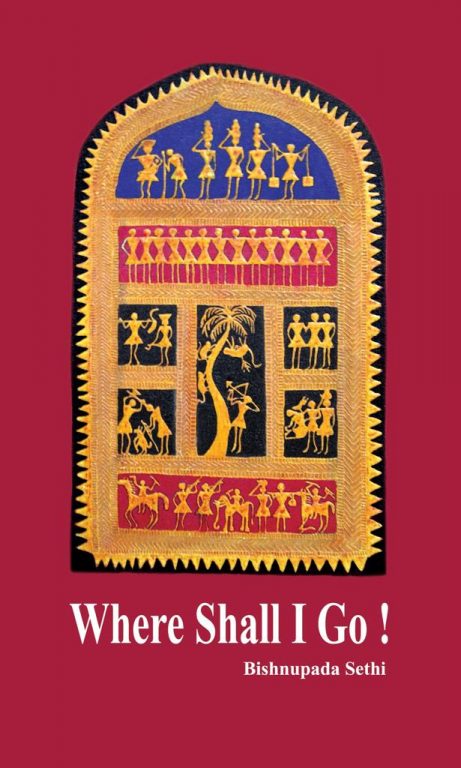
The book was released by Mr. Thachom Poyli Rajeevan, an internationally acclaimed poet, who had remarked then that “the poems have a sort of primeval innocence and an urban strength in them. The poet’s inscape reminds of an uninhabited interior of a forest land where everything is as fresh and unpolluted as ‘the first flow in the river during rains’ and the ‘dew drops on green leaves. In him meet two streams: a refined lyricism which sometimes soars up into what can be called Tagorian mysticism; and the down to earth folk tradition that often contextualises time and space in terms of a society’s collective memory.”
SIMPLY INTENSE
It is the real life experiences that mostly inspire Mr. Sethi to compose poems. “An event that occurs in front of us is simply not blunt or blank. I look for causes, values, morals, missing links. There are happenings which stir my imagination, sentiments, feelings, consciousness. At times, I capture those in words.”
He tries to use simple words. However, the poems become intense like the figures that move inside them. “My poems open a new world before the readers and with a sincerity of description and purpose that is very much its own. Sometimes I speak of ancient traditions that is in the danger of being annihilated by the ‘modern’ ways of life. However, there is nothing sentimental about the themes and their treatment, nothing that may be thrown aside as unimportant”.

BEYOND HERE AND OTHER POEMS
There are altogether 61 poems in this book. Just as in search of own identity, one traipses into many unfamiliar territories and strange experiences, but always emerges richer, and a step closer to self-discovery, so also, in the book, Beyond Here and Other Poems, the poet has embarked on such a journey from the here and now to beyond.
“I am mindful that our grasp of any truth will remain fragmentary if it is explored in isolation of its opposite. Hence, death pops up again and again when the poems grapple with the meaning of life. However, while death shows up amid the celebration of life, it does not intrude as a herald of sorrow and finality. On the contrary, the living and the dead come together as fundamental parts of a cosmic whole, pointing to the soul’s permanence.”
Although the lines obsess with mortality, the allusion is largely tangential: death is treated as only an undeniable fact of life. However, death becomes vivid and sensory once the Covid pandemic plays havoc with humanity with all its instruments of torture. The poet moans while he surveys the gloom that surrounds the locked-down world as people were dying in their droves. The stench of death is too overpowering to ignore.

Yet, the overarching death consciousness fails to rattle the poet’s world not only because he considers death the flip side of life but also because life should be celebrated in full force. He brings to mind the happy memories of childhood, conjugal love, time of celebration with young ones in the family.
Just as the poet shuns the idea that life is confined between birth and death, he also sets aside the concept of linearity of time. In his universe, past, present and future seesaw and take each other’s place, conjuring up the essence of eternity, continuity of life and reappearance of memories. He writes, “Future is never an extrapolation / Of the present state on the passing away of a loved one.” Also, “Something was to leave soon / To be part of something else“, “Quite Unusual (Page-96)”.
In many pieces in the book, the continuity of life comes out as a dominant motif. The essence of the father lives on in the child. The five elements that constitute our beings are shared by all, in the past and the future, “Like I’m an aggregate / Of all my forefathers.” “Till Infinity (Page-104).”
Besides death, separation, leaving, irrational fear, and nightmares are recurring themes of the poems. But despite their preponderance, what gives succour to life is faith in the soul’s indestructibility, close unity of humanity despite outward divisions and eternal bliss of the almighty. These are the ‘beyond’ parts.
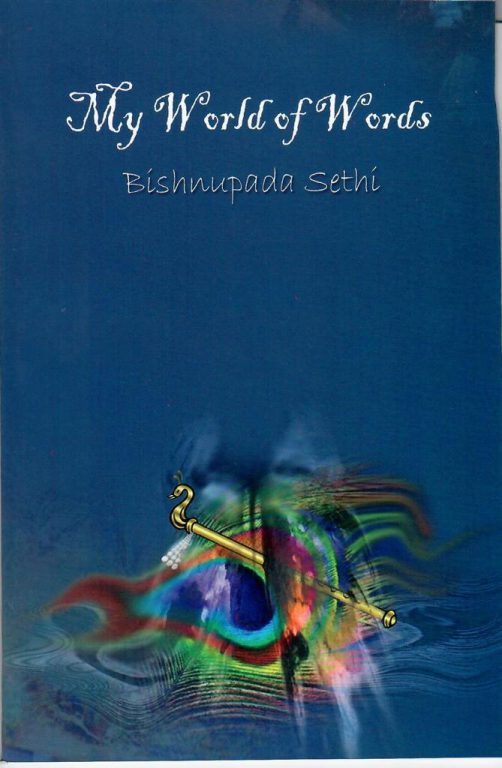
PASSION KNOWS NO BOUNDS
Mr. Sethi is a recipient of distinguished alumnus award from the National Institute of Technology, Rourkela as well as National Institute of Industrial Engineering, Mumbai (now IIM Mumbai). He had joined the Indian Administrative Service in 1995.
By serving in various underdeveloped regions of Odisha, like Kandhamal, Gajapati, Sonepur, Nuapada, Rayagada, he got deep insights into the lives of common people and handled them with great sensitivity for which National Human Rights Commission, which was then monitoring starvation deaths in the KBK region, appreciated his role.
As the Special Relief Commissioner, Mr. Sethi’s performance in managing Super Cyclone FANI had been highly acclaimed even by the UN.
His work keeps him extremely busy, yet he still manages to find time to indulge in his passion – writing poems. “There is always enough time to do something when one has a passion for it. We have enough time beyond our office hours to indulge in anything that we like. I will keep writing poems and publish again when there are enough numbers of poems to compile a volume. I have also drafted a non-fiction book, which is under the publication process.”
In Odisha, poetry writing by civil servants is not something uncommon but rather a convention. However, Mr. Bishnupada Sethi’s collection of poetry stands out as a hamper of beautiful and discerning nuggets of wisdom that give life its profundity and imbues it with myriad colours.







